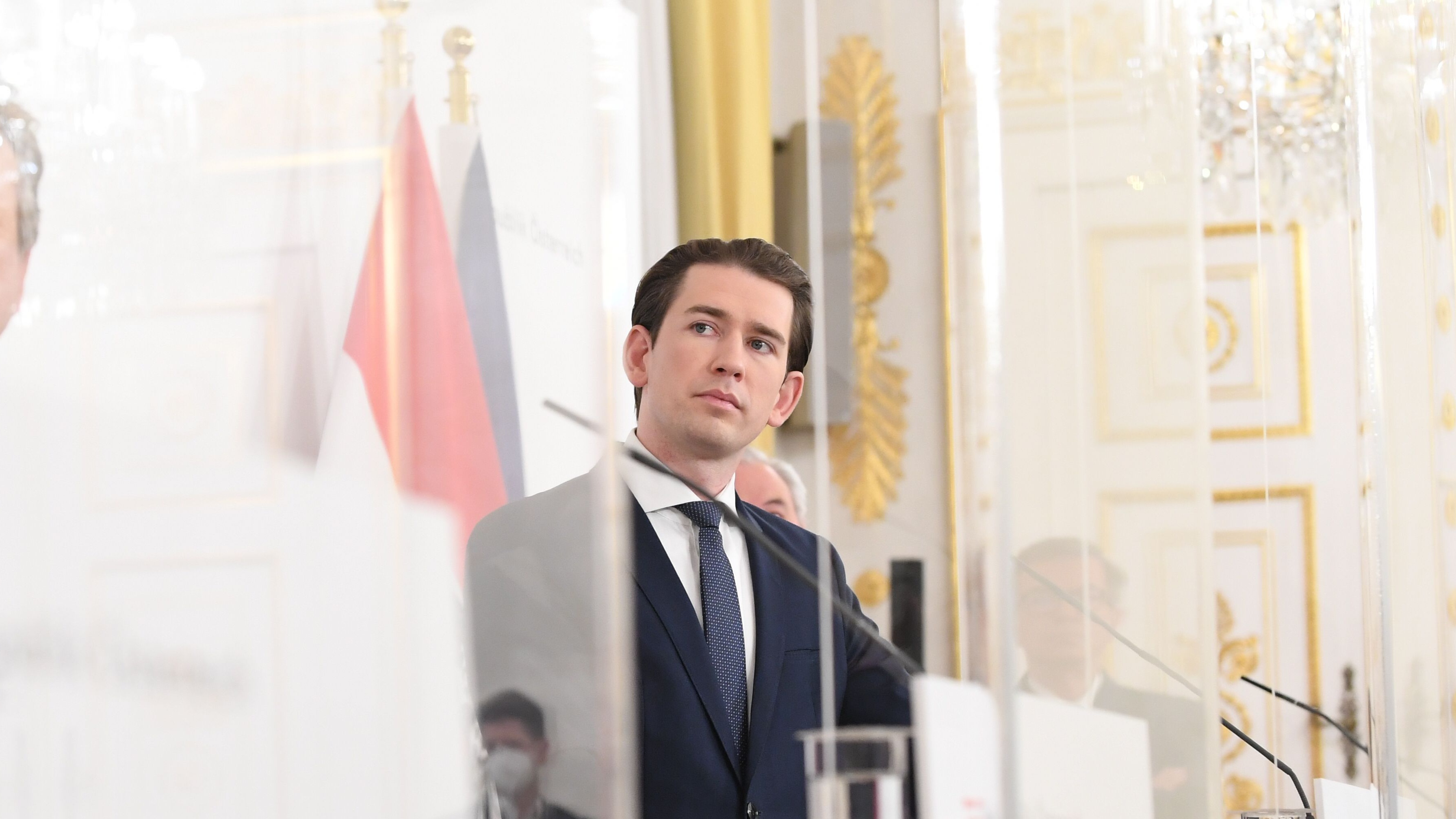EU vaccine solidarity splinters as nations break from joint scheme
Austria and Denmark among member states negotiating separate deals to accelerate Covid jab rollouts

A free daily email with the biggest news stories of the day – and the best features from TheWeek.com
You are now subscribed
Your newsletter sign-up was successful
Austria and Denmark have dealt a fresh blow to the EU’s ailing joint vaccine procurement scheme by agreeing to partner with Israel to get extra doses of Covid jabs.
Austrian Chancellor Sebastian Kurz told German tabloid Bild yesterday that the European Medicines Agency (EMA) was being “too slow” to approve vaccines and that his nation “should no longer be dependent only on the EU” for jabs.
According to Politico’s Brussels Playbook, Kurz and Danish Prime Minister Mette Frederiksen are to “seal a vaccination deal” with Israel at a meeting with Israeli leader Benjamin Netanyahu on Thursday.
The Week
Escape your echo chamber. Get the facts behind the news, plus analysis from multiple perspectives.

Sign up for The Week's Free Newsletters
From our morning news briefing to a weekly Good News Newsletter, get the best of The Week delivered directly to your inbox.
From our morning news briefing to a weekly Good News Newsletter, get the best of The Week delivered directly to your inbox.
In a further splinting of EU vaccine solidarity, Poland is asking China for vaccines.
And Slovakia has ordered two million doses of Russia’s Sputnik V vaccine, which is yet to be approved for use by the EMA. The decision has proved controversial, however, with Slovakian parliament member Tomas Valasek quitting the government coalition over the plan to order doses from Moscow.
The bloc’s procurement scheme was further undermined on Sunday when Hungarian PM Viktor Orban posted a photo on social media showing himself being inoculated with the Chinese Sinopharm vaccine, which has also not been approved by the EMA.
Meanwhile, European countries left with a shortage of vaccine doses by the EU’s stuttering procurement process are reportedly turning to the “grey market” in their search for more jabs.
A free daily email with the biggest news stories of the day – and the best features from TheWeek.com
Indeed, EU nations are beginning to take “pitches from around the world at often exorbitant prices”, says The New York Times. Sellers offering millions of doses of coronavirus vaccines “have approached EU governments”, the paper reports, and “some nations are also trying to negotiate directly with drug makers and eyeing the murky open market where they are still unsure of the sellers and the products”.
Chas Newkey-Burden has been part of The Week Digital team for more than a decade and a journalist for 25 years, starting out on the irreverent football weekly 90 Minutes, before moving to lifestyle magazines Loaded and Attitude. He was a columnist for The Big Issue and landed a world exclusive with David Beckham that became the weekly magazine’s bestselling issue. He now writes regularly for The Guardian, The Telegraph, The Independent, Metro, FourFourTwo and the i new site. He is also the author of a number of non-fiction books.
-
 Why is the Trump administration talking about ‘Western civilization’?
Why is the Trump administration talking about ‘Western civilization’?Talking Points Rubio says Europe, US bonded by religion and ancestry
-
 Quentin Deranque: a student’s death energizes the French far right
Quentin Deranque: a student’s death energizes the French far rightIN THE SPOTLIGHT Reactions to the violent killing of an ultraconservative activist offer a glimpse at the culture wars roiling France ahead of next year’s elections
-
 Secured vs. unsecured loans: how do they differ and which is better?
Secured vs. unsecured loans: how do they differ and which is better?the explainer They are distinguished by the level of risk and the inclusion of collateral
-
 Epstein files topple law CEO, roil UK government
Epstein files topple law CEO, roil UK governmentSpeed Read Peter Mandelson, Britain’s former ambassador to the US, is caught up in the scandal
-
 Iran and US prepare to meet after skirmishes
Iran and US prepare to meet after skirmishesSpeed Read The incident comes amid heightened tensions in the Middle East
-
 Grok in the crosshairs as EU launches deepfake porn probe
Grok in the crosshairs as EU launches deepfake porn probeIN THE SPOTLIGHT The European Union has officially begun investigating Elon Musk’s proprietary AI, as regulators zero in on Grok’s porn problem and its impact continent-wide
-
 Israel retrieves final hostage’s body from Gaza
Israel retrieves final hostage’s body from GazaSpeed Read The 24-year-old police officer was killed during the initial Hamas attack
-
 China’s Xi targets top general in growing purge
China’s Xi targets top general in growing purgeSpeed Read Zhang Youxia is being investigated over ‘grave violations’ of the law
-
 Panama and Canada are negotiating over a crucial copper mine
Panama and Canada are negotiating over a crucial copper mineIn the Spotlight Panama is set to make a final decision on the mine this summer
-
 Europe moves troops to Greenland as Trump fixates
Europe moves troops to Greenland as Trump fixatesSpeed Read Foreign ministers of Greenland and Denmark met at the White House yesterday
-
 Why Greenland’s natural resources are nearly impossible to mine
Why Greenland’s natural resources are nearly impossible to mineThe Explainer The country’s natural landscape makes the task extremely difficult